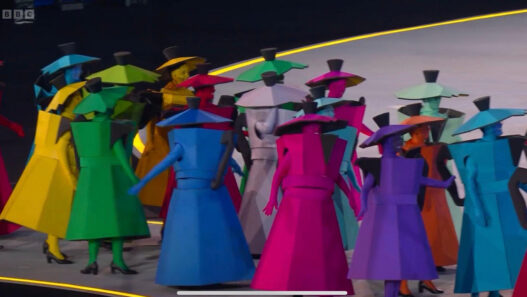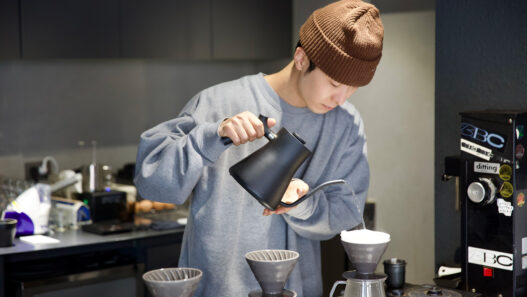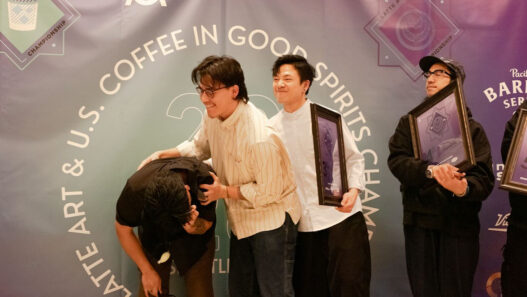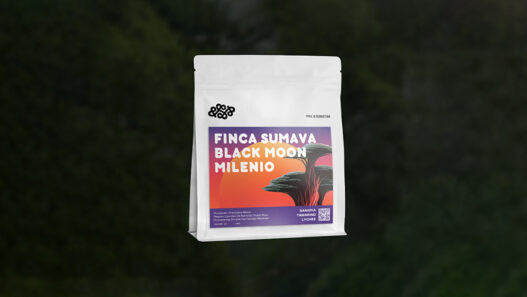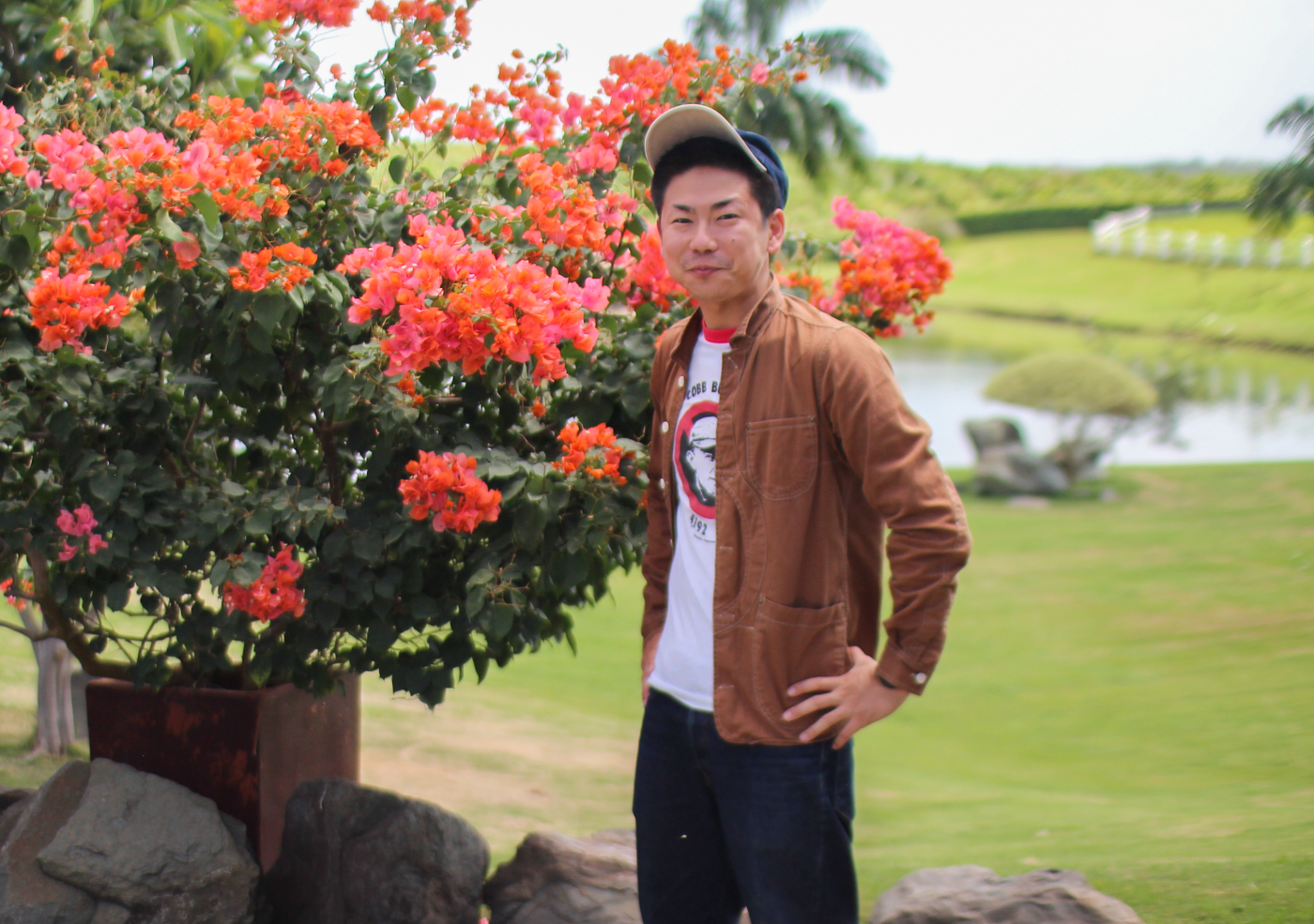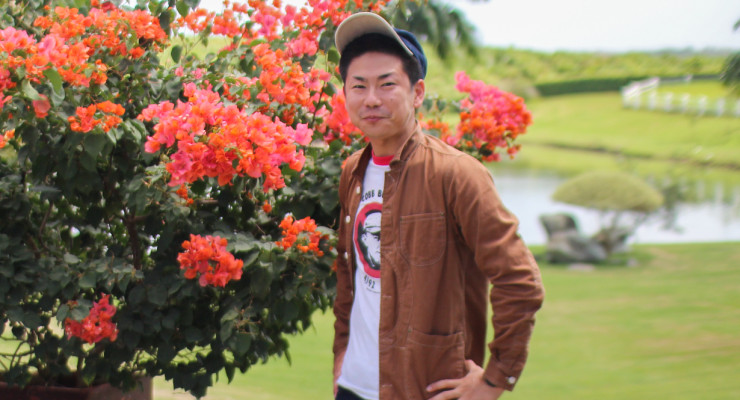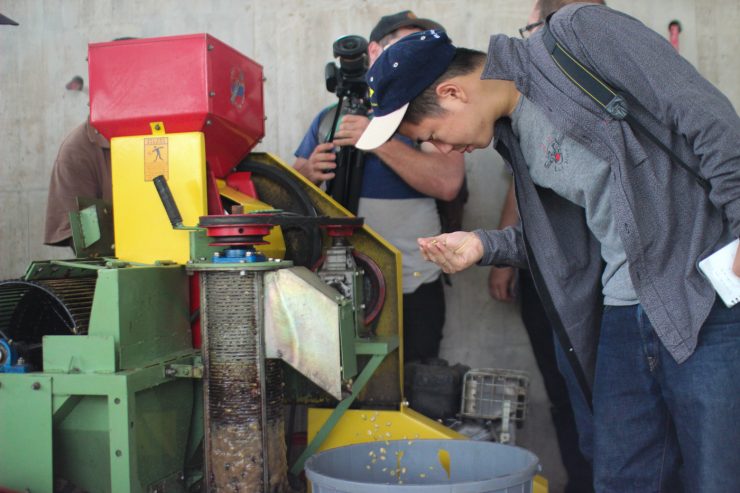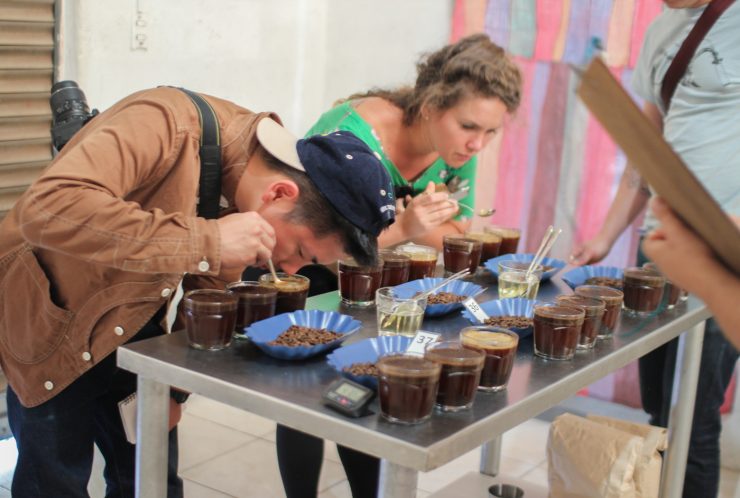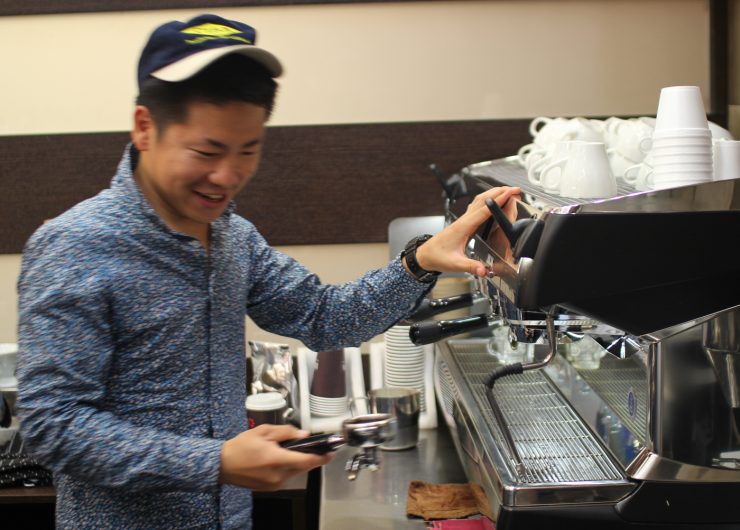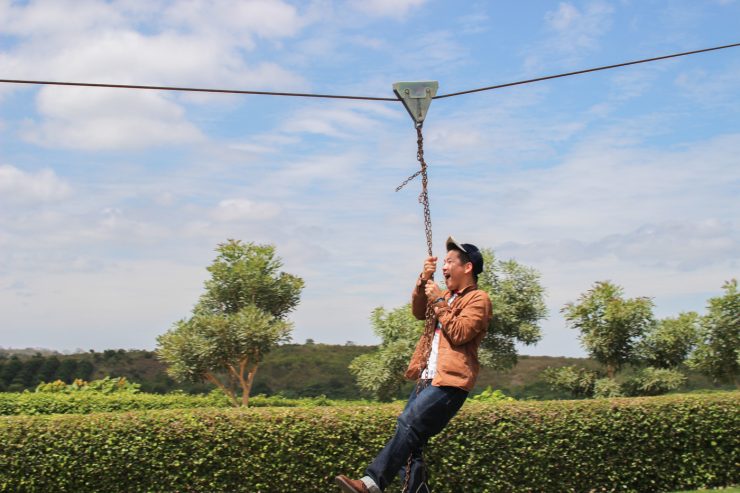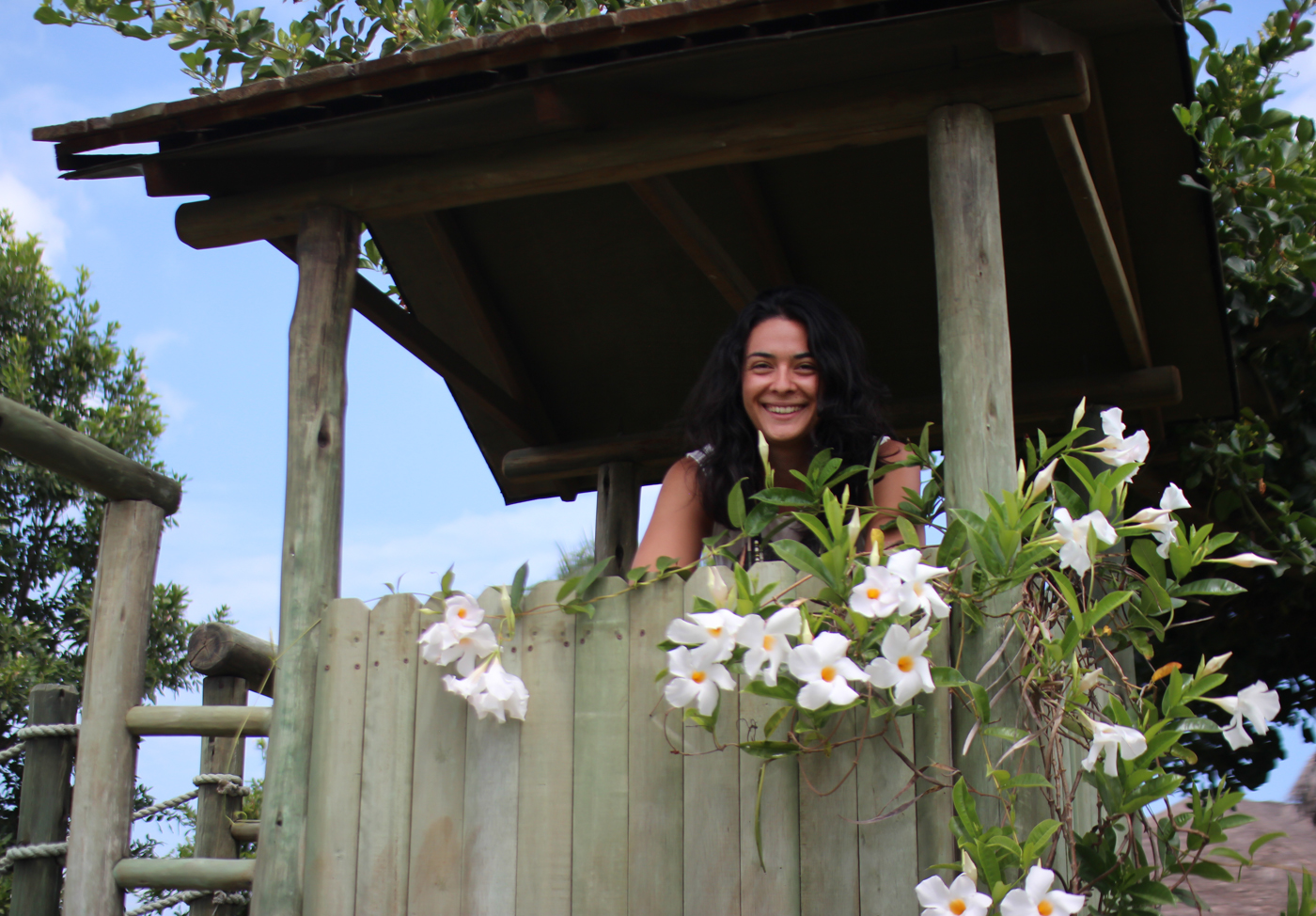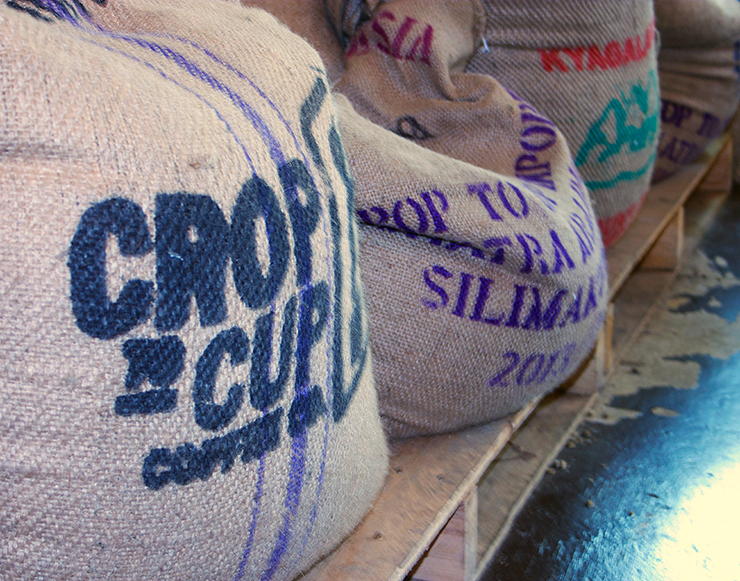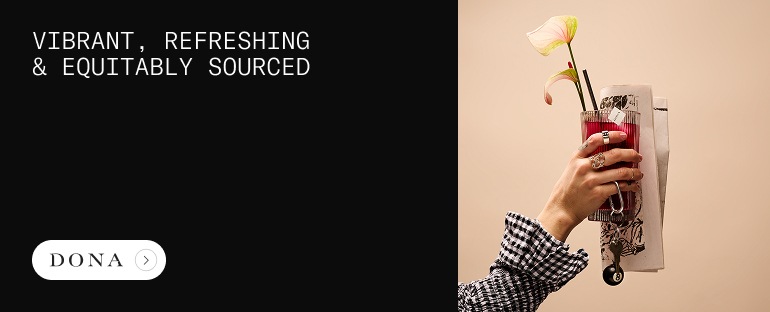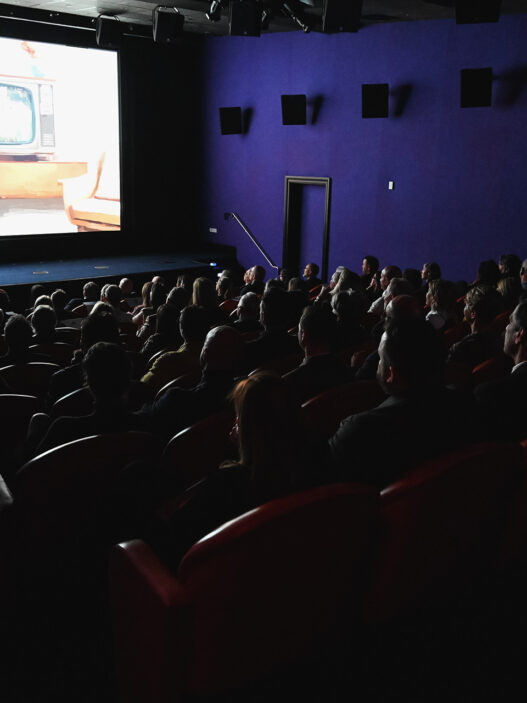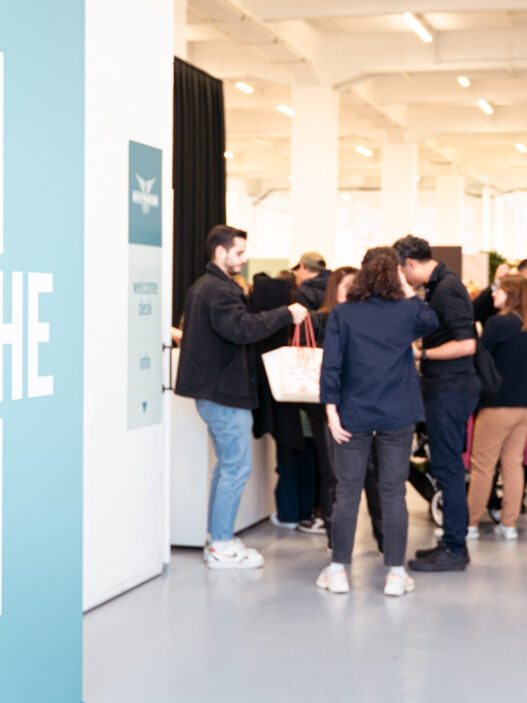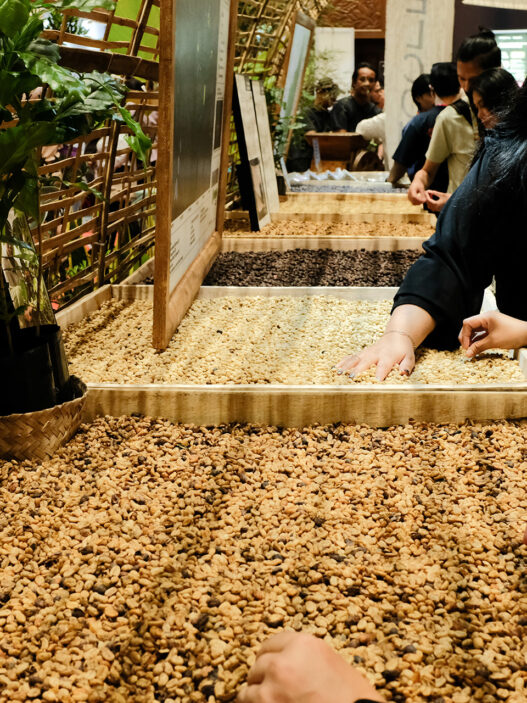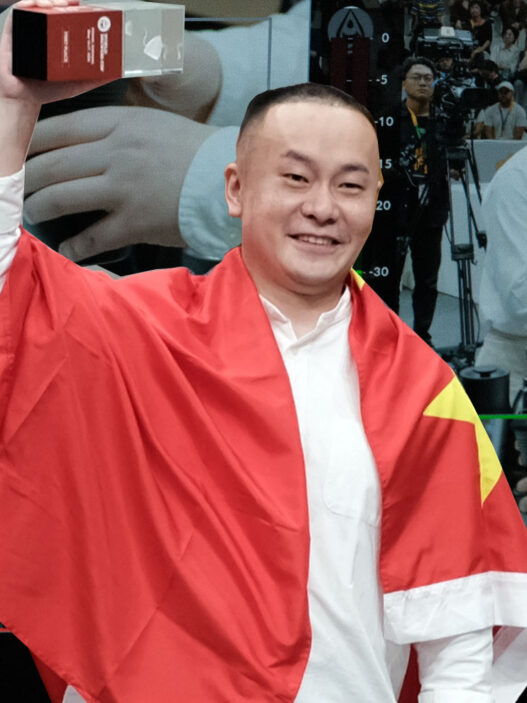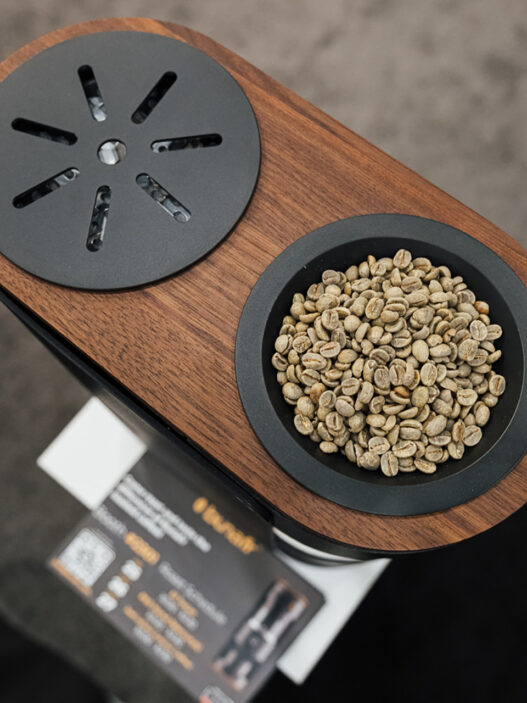Last June, Hidenori Izaki became the first Japanese competitor to win the World Barista Championship (read about his victory here in Japanese). Sprudge.com Assistant Editor Alex Bernson recently sat down with Mr. Izaki in Ecuador for his first major English-language interview since winning the WBC. This interview happened as part of a Cafe Imports origin trip to Ecuador, a prize given to US regional and national winners and the World Barista Champion.
How did you first get into coffee?
Seven years ago, when I was seventeen, my dad had a coffee shop in Fukuoka, called Honey Coffee. I had just dropped out of high school, so I was looking for work. I learned a lot about being a barista there, and it was good for the relationship [with my dad]. That was when I first met Kentaro Maruyama [owner of Maruyama Coffee]–my dad was working with Kentaro to import coffee.
I worked at Honey Coffee for two years, and I realized I needed to go back to school, so I finished high school. Working in the coffee industry, I saw the leaders of the industry–they were very sophisticated, very educated–I felt I needed to learn more. I moved to Tokyo to attend Hosei University, where I majored in Cultural Studies and learned English and a little bit of Spanish.
While I was studying in Tokyo, I was working for Maruyama, but they didn’t have a Tokyo shop at the point, so on weekends and holidays I’d take the Shinkansen [Bullet Train] to Nagano and work as a barista.
Why was working with Maruyama so important to you?
I wanted to learn everything I could about coffee. Kentaro is the most famous green buyer in Japan, he’s travelled a lot, and knows so much. Kentaro was also really focusing on barista training.
Once I graduated I moved to Nagano to work with Maruyama full time, doing training, conducting seminars, and yes, still working the coffee bar.
What do you think were the keys to your success in Rimini?
First, working directly with producers. I knew Monte Copey was an insane coffee, Kentaro always talked about the terroir and micro-climate there. Two years ago I went to Costa Rica by myself, and I got to know Enrique Navarro Jr. of Monte Copey. Last year I won the Japanese Barista Championship using coffee from Monte Copey.
Working with Enrique made a lot of sense: he is in the same generation as me, he’s like 22 years old, where as most producers are usually 40-50. He’s also in a second generation coffee family just like me. We have a very similar background.
I knew I wanted to use his coffee, but the acidity was a little high as espresso, and taste balance is very important for WBC. Kentaro and I often talk about “what is this coffee good for?” on the cupping table, and so we thought, why not work with Monte Copey to produce a coffee which is focused on espresso.
We got different farm, variety and processing samples from Enrique and cupped all the lots, while staying in heavy communication with Enrique and Francisco Mena [the importer behind Exclusive Coffees who works closely with Costa Rican micro-mills]. Kentaro and Pete Licata and I went to Costa Rica in February to get hands-on.
I wanted more sweetness in the coffee, and so Enrique suggested we focus on a drying method that would dry the coffees slowly to maximize sweetness. We wound up with a process that started drying on African beds, then moved the beans to shade drying. We created five or six lots, and wound up using the two that had the sweetness and body we were looking for.
Tell me about the reaction to your win in Japan. Has there been a lot of interest and excitement? Has the media covered it?
The Japanese coffee industry has been so excited, we’ve been working so hard to win. It was seen as really hard for an Asian country to win WBC, since we are not known for our espresso culture. My customers have been so happy too—one customer started crying in the shop when they heard.
I’ve gotten lot of interviews from TV shows, radio, magazines. I still need to expand the word “barista” for Japanese people—they think the barista is just making coffee. I want the Japanese people to think the barista is a very professional job, with very professional skills and knowledge. I feel a responsibility to do that.
Some of the interviewers got it, but I’ve had to explain very simply. It’s hard to explain barista competition, the values and the importance! It’s hard to explain to people not in the industry. Especially because I’m young, and I’ve got a unique background–in Japan, usually you go to University directly. I dropped out of highschool, worked for a while, went back to school, studied English. Some of the media have really understood though–how important this win is, how great things can happen in this industry.
Being the World Barista Champion was always my dream, since I first started in coffee–it was my life dream, and I achieved it. But for other people who don’t work in the industry, they don’t know. I have to make an effort to tell that story of people working so hard, to make people care.
What are some of the differences you see between the Japanese coffee scene and other countries’?
In Japan, the culture of the espresso is not known as much, we are much more filter focused. The specialty market is getting bigger and bigger though.
When we went to Italy, after dinner the waiter asked, “un caffè?” There’s a culture there for the Italian people. In Japan there’s not the same culture of drinking coffee. In the US you grab the coffee and go. In Japan it’s more focused, “Let’s go somewhere and drink coffee”
What are you particularly excited for in coffee?
My passion for coffee is always at origin. I’m very excited to be in Ecuador–I want to help baristas connect at origin, to producers. To make the distance between them much closer. My dream is to do work at origin, hearing the opinion of baristas and customers, what coffees they want, and help producers understand and make coffee for those desires.
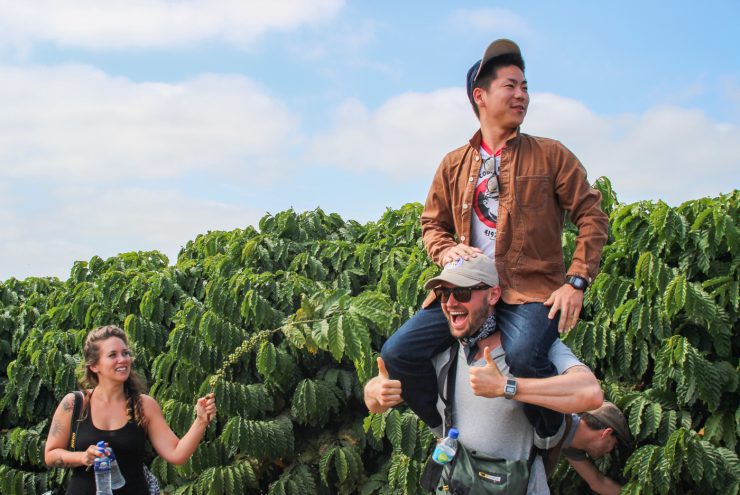 [2007 World Barista Champion] James Hoffmann for example focuses on the scientific side of coffee often, whereas I think my interest is in origin and how that relates to the cup of coffee being served. The barista has to get involved there—there’s a lot of things we don’t know yet. After becoming WBC champ, I’m like, I don’t know anything! I was talking to Alejandro Mendez [2011 World Barista Champion] and he said winning WBC doesn’t really mean that it’s proved you now brew the best coffee in the world, instead it means that that your journey for learning more about coffee is just beginning.
[2007 World Barista Champion] James Hoffmann for example focuses on the scientific side of coffee often, whereas I think my interest is in origin and how that relates to the cup of coffee being served. The barista has to get involved there—there’s a lot of things we don’t know yet. After becoming WBC champ, I’m like, I don’t know anything! I was talking to Alejandro Mendez [2011 World Barista Champion] and he said winning WBC doesn’t really mean that it’s proved you now brew the best coffee in the world, instead it means that that your journey for learning more about coffee is just beginning.
We feel like we know abut things, about honey process, demucilaging, things like that. But actually there are a lot of things we don’t know. We have to be very honest, we have to be able to say “I don’t know.” It’s very important to have the feeling of “I want to know more.”
Alex Bernson (@AlexBernson) is the Assistant Editor at Sprudge.com. Read more Bernson here.




